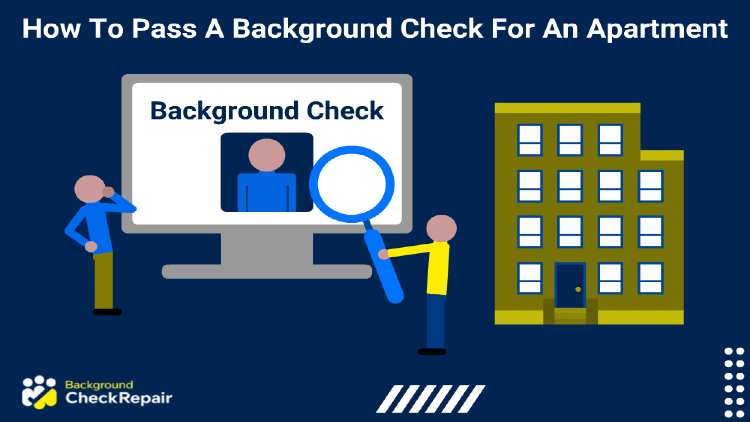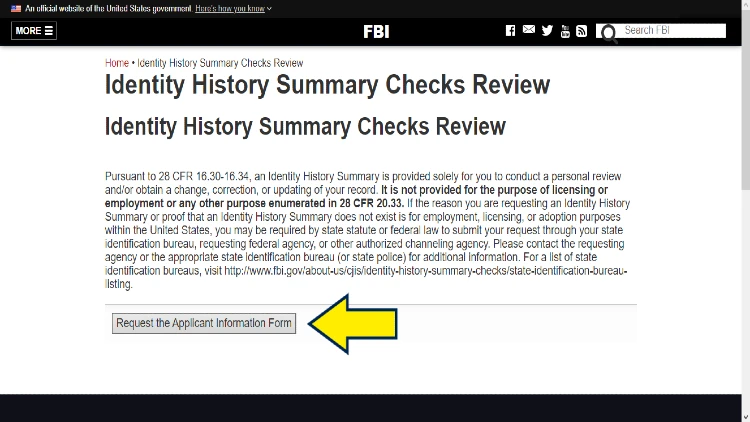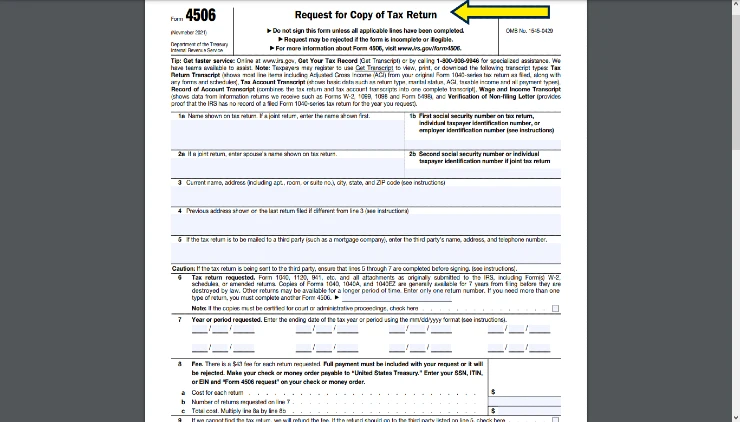How Far Back Does a Background Check Go for an Apartment?
Most tenant screenings range between 7 to 10 years. The time limit varies according to state, but they generally do not exceed ten years.
 Written by Background Check Repair
Written by Background Check Repair
Background Checks | May 28, 2024

Table of Contents
Every person looking to rent in the US should know how to pass a background check for an apartment. Most property managers and landlords want a squeaky-clean record and a tenant who will pay on time.
The housing market is already volatile, and as a result, some people may miss out on their dream homes because of discrepancies in their records.
For new tenants, the first thing to do is run a tenant background check on yourself immediately to see what shows up on a background check, and what potential landlords will see.
It’s very simple.
Or
Landlords want to protect their properties against losses, legal pursuits, and damages that may result from tenant activity.1 As such, if the applicant has something questionable on their report, it compromises their chances of residency. But, knowing how to remove arrests from background checks and other infractions can go a long way toward making your move.
It’s important to note that past criminal, rental, and financial issues do not necessarily mean the end of the line to tenancy. Here are a few steps potential tenants need to take immediately to ensure that they know how to pass a background check for an apartment.
Landlords conduct tenant background checks or screening to find out the history of their potential clients and verify whether they can pay and meet the lease requirements.2 A tenant screening involves examining available public records, such as credit and criminal history, verifying conduct by talking to employers and landlords, finding out where someone works, and making sure they can pay rent until the end of the lease.
Landlords are looking for four qualities in a tenant:
A landlord or property manager will look up all or one of these records before approving the lease. Also, potential tenants will cover the cost of this screening.
Most landlords and apartment managers perform the most comprehensive background check, meaning that the screening itself include a number of separate checks.
The following are the most common:
A tenant criminal background check is not as thorough as employment background checks. Usually, the landlord or property manager will conduct a name-based criminal screening; in some cases, they may use national databases.
A criminal background check will reveal:
According to most state and federal laws, a criminal background check is limited to 10 years or less.
A rental credit check is vital in tenant screening because it shows the potential tenant’s financial standing and reliability. The ideal credit score should be 600 or more. However, a lower score does not necessarily mean an automatic rejection. A rental credit check will also reveal an applicant’s credit history patterns.3
The government provides resources where applicants can review and correct any report errors.3
Rental history will provide previous addresses and contact information of former landlords or property managers. Incidences of eviction are usually enough grounds for rejecting an application.
However, it’s important to note that an eviction will not show up on a background check unless there has been an official judgment entered. If the dispute was handled with a judgement (such as paying back rent and vacating the premises), that record may not be listed.
The standard income rate that landlords want is typically three times the monthly amount. For example, if the rent is $2,000, a landlord usually wants to see an income of at least $6,000 per month.
The landlord will request an applicant’s employment history to verify their income source and stability in this position.
When landlords get a background check report back, it has detailed information, including:
This reveals the financial history and proof of a potential tenant’s reliability in paying their bills. Most Landlords request a credit score of 600 or more. However, financial reliability goes beyond the credit score. If patterns in a credit score indicate potential tenants were on track with their payments, most Landlords will consider this when making a decision.
The potential tenant should request a credit report and fix any errors before the tenant screening.11
In the case of a low credit score, the landlord may request the potential tenant find a guarantor who will co-sign the lease. However, it’s important to note that a low credit score is a reasonable ground to deny an application.
Landlords’ standard income rate is three times the rent price. This rate ensures that the tenant can pay rent every month. Landlords may verify a potential tenant’s income by calling their workplace to ensure that the tenant works there and earns as much as they claim.
The potential tenant will provide the contact information of previous tenants and landlords to verify their rental history. A landlord will trust a potential tenant with a positive rental experience.
Fair housing laws vary in each region. In some counties, landlords are restricted on what they can and cannot consider when reviewing a criminal background screening.
A criminal history screening will look at convictions as well as unprosecuted or dismissed cases that stay in an individual’s record for up to 7-10 years. The Fair Credit Reporting Act prohibits records older than this timeline.12
The Fair Housing Act prohibits discrimination against renting with a criminal history.13 Landlords are expected to consider the nature and severity of the crime (s), rehabilitation since the conviction, and how old the record is.4
Tenant background screenings look at employment and credit history as far back as 7-10 years. Bankruptcies will remain on an individual’s record for ten years, while negative reports such as car repossession will stay on a credit report for seven years.5
Several factors affect the length of tenant screening. The first is the jurisdiction where the screening takes place. Local renters and tenant laws vary across states and sometimes cities.
The second factor is the type of background check the property manager or landlord is running. Even though local tenant laws provide guidelines on the kind of background checks that the landlord can run, each landlord has their way of conducting a background check.6 In some apartments, the checks may be basic, while in others, the checks may be more intensive.
Third, the property manager or landlord conducting the check may need to search for specific public information on a potential tenant.7 The requester will be subjected to the agency’s timeline that supplies this information. Even so, most databases for background checks are accessible online; thus, this process can be quite fast.
Fourth, the requester will delay because the background check is taking so long to come back. Due to one reason or another, the requester may have to wait to get the results of the background check.
Tenant background checks are not as long and detailed as they seem. The process may take only a couple of days or utmost a week. The general timeline for various checks is as follows:
Section 8 is a Housing Choice Voucher program that provides homes for low-income recipients. The voucher helps the recipient lease or find a home and the program conducts background screening to find the ideal recipient. As a result, certain public and criminal records may prohibit an applicant’s acceptance into the program.8
The program reviews criminal history to look for reliable applicants. Therefore, any illegal activities that appear on the record and are a threat to the safety of others may be a reason for denying the voucher.
The housing agency (PHA) is responsible for accepting or rejecting the application, and it will provide the data used during the background check process. Application for section 8 can be denied because of the following reasons:
Applicants may be asked to provide criminal information on their application forms. This information should be accurate as it will be cross-checked with public records. Misrepresentation of information may lead to rejection of the application.
The PHI checks applicants’ criminal backgrounds using Criminal Offender Record Information (CORI) reports. A CORI report will include dismissed charges and not-guilty verdicts.
PHA contacts local police departments to access out-of-state criminal histories. Even though they have special certifications, the process is subjected to specific regulations.
The PHA grants lifetime bans for registered sex offenders and applicants who have been previously evicted for drug-related convictions, particularly convictions of methamphetamine production in federally assisted housing. Additionally, past violent criminal activities, especially those that are a threat to the safety and enjoyment of others, may lead to a rejected application.
The PHA only reviews arrests and convictions for up to five years.
Learning how to pass an apartment rental check is important for those with a spotty record. Otherwise, finding an apartment will be a tough, arduous process. To manage the incidents on their report, applicants must take the following steps:
It is crucial that the applicant conduct their own background check before applying for a lease. This information will help the applicant make a plan of action.

How Do Applicants Find Their Records?
Criminal records in the US are maintained and disbursed by law enforcement agencies. The records will have convictions as well as arrest records. Applicants can request copies of their records from:
The process is straightforward; the applicant must contact their local police department and run their fingerprints. The police will give the applicant a rap sheet of their criminal background, and the applicant can request to fix any errors.
Eviction History
If an applicant has an eviction incident, it will remain on their record for seven years. The first step is to come clean to the potential landlord and explain the reason for the eviction. Many landlords will consider an applicant with an eviction on their records if they see a stable pattern of payment that was hindered by a significant life problem such as hospitalization, divorce, or death of a loved one.
The applicant will also have to provide character testimonials from trusted sources such as employers or other sources such as friends and family. The goal here is to provide reassurance of trustworthiness and reliability.
Bad Credit
If an applicant has a subprime credit rating (Score between 580 and 669), they are likely to be rejected by a potential landlord. The first step is trying to settle any outstanding bills. The potential tenant should provide proof of their efforts. This proof includes items such as bank statements that reflect installments reducing the debt. Improving credit score is one of the key lessons on how to pass a background check for an apartment.
A criminal history works against an applicant during tenant screening. Many landlords are not open to renting to someone with a previous conviction, especially if it’s a violent crime or drug-related charge. A person with a criminal history has to take the following steps:
Sealing Or Expunging Criminal Records
Record sealing or expungement is the best option for a potential tenant with a criminal history. These two processes involve either expunging or sealing criminal records. In the end, these records are not publicly available.9 Therefore, landlords can’t access them. The records will be available only to certain government agencies.
Expunging records depend on:
Check the State Law Concerning Background Checks
Applicants need to learn their state laws regarding background checks. Specific statutes prohibit records or convictions older than seven years. Additionally, some state laws prohibit discrimination based on criminal history.
Look for Apartments That Allow Tenants With Criminal Histories
It may be shocking, but there are several apartments that don’t do background checks. The goal is to aim for small complexes managed by landlords rather than property managers. Additionally, the applicant should inquire about what is expected of them and volunteer conviction information.
Show Positive Character
The applicant should show proof of a positive character. Anyone who has paid their debt to society can provide education pursuits, character testimonials, and evidence that they are contributing to society, such as volunteering.
Work With a Reentry Program
Reentry program resources are available in most major cities and every state. These programs help ex-convicts look for jobs, reintegrate into society and find housing. Additionally, besides Section 8 housing, several groups provide housing solutions for people with a criminal history, such as the Department of Housing and Urban Development and Catholic Charities USA.14,10
Most landlords and property managers have their preferred credit scores. However, the consensus agrees that a score of 670 and above is ideal. The credit report is subjected to several factors, including:
Potential tenants should strive to maintain and improve their credit score by doing the following:
Most landlords reject poor credit scores; however, an applicant can do the following:
Be Upfront With the Landlord
Sometimes, landlords are open to listening to an explanation of why a potential tenant has a poor credit score. Some valid reasons that a landlord can accommodate include:
Use a Cosigner
This is a common step used chiefly by students who don’t have a credit history. Landlords may also accept a guarantor signing the lease for someone with poor credit.
Provide Strong Proof of Income
The best way to convince a landlord that an applicant can make regular payments is to provide proof of income, such as pay stubs and employment letters showing consistent income.

Americans with spotty records often have a terrible experience when trying to rent an apartment. Potential tenants have various options to choose from, for example, picking an apartment that does not conduct criminal background checks or conducting background checks on themselves to fix any errors. Despite the difficulties with renting, it is easy to learn how to pass an apartment background check.
Most tenant screenings range between 7 to 10 years. The time limit varies according to state, but they generally do not exceed ten years.
A background check can take between 24 to 72 hours. However, the landlord is at the mercy of the agency conducting the check therefore it may take longer. In most cases, the landlord will get back to the potential client within a week.
A background check for an apartment generally costs $20-$200. Some laws limit how much a potential landlord can charge for a background check.
A tenant screening check will include:
Usually, landlords and property managers will do the following background checks:
Potential tenants can beat a background check by:
Section 8 Housing Voucher primarily examines a potential applicant’s criminal history. Criminal activities that are a threat to the safety and enjoyment of others will cause an automatic rejection.
Potential tenants can get around a background check by:
An apartment background check is actually a group of public records searches that examine a person’s criminal history, credit reports, and income.
1Apartment Background Check 101: FAQ For Tenants. Nd. 24, Retrieved June 2022, from <https://www.brixbid.com/chicago/apartment-background-check-guide/>
2Weintraub L. (2016, November 18). Renting an Apartment, Be Prepared for a Backgrounds Check. Federal Trade Commission Consumer Advice. Retrieved 24 June 2022 from <https://consumer.ftc.gov/consumer-alerts/2016/11/renting-apartment-be-prepared-background-check>
3Government Information and Services. (2022, April, 27). Credit Reports and Scores. USAGOV. Retrieved 24, June 2022, from <https://www.usa.gov/credit-reports#content>
4Landry, J. (n.d.). Moving in, Moving Out, and Everything in Between. AG Guide to Landlord-Tenant Law. <https://ldh.la.gov/assets/oph/Center-PHCH/Center-CH/infectious-epi/EpiManual/MoldComplaints/AGguideToLandlordTenantLaw.pdf>
5Pirulis A, n.d. Everything You Need to Know About Apartment Background Checks. Renterverse Apartments.com Retrieved 24 June 2022 from <https://www.apartments.com/blog/everything-you-need-to-know-about-apartment-background-checks>
6Consumer Rights when you rent an apartment. (2004). MECLG 14 Chapter 2003. <https://www.maine.gov/ag/dynld/documents/clg14.pdf>
7What Does Section 8 Look for in a Background Check? Nd. Retrieved 24 June 2022 from <https://www.kpcbedge.com/section-8-background-check/>
8Department of Community Affairs. (2022). Truth in Renting. <https://www.state.nj.us/dca/divisions/codes/publications/pdf_lti/t_i_r.pdf>
9Lo, K. American Progress. Expunging and Sealing Criminal Records. 15 April 2020. Retrieved 24 June 2022 from <https://www.americanprogress.org/article/expunging-clearing-criminal-records/>
10Catholic Charities USA. (2022). Catholic Charities, Migrants and Ministry. Catholic Charities USA. Retrieved June 27, 2022, from <https://www.catholiccharitiesusa.org>
11Consumer Financial Protection Bureau. (2022). Credit Reports. Annual Credit Report. Retrieved June 27, 2022, from <https://www.annualcreditreport.com/index.action>
12Federal Trade Commission. (2018, September). Fair Credit Reporting Act. Fair Credit Reporting Act – Revised September 2018. Retrieved June 27, 2022, from <https://www.ftc.gov/system/files/documents/statutes/fair-credit-reporting-act/545a_fair-credit-reporting-act-0918.pdf>
13The State of North Carolina. (2022). Renting with a Criminal History. Renting with a Criminal History. Retrieved June 27, 2022, from <https://files.nc.gov/ncdps/documents/files/Renting_with_a_Criminal_History.pdf>
14US Department of Housing and Urban Development. (2022). Need Homeless Assistance? HUD Exchange. Retrieved June 27, 2022, from <https://www.hudexchange.info/housing-and-homeless-assistance/homeless-help/>
We use cookies to ensure that we give you the best experience on our website. If you continue to use this site we will assume that you are happy with it